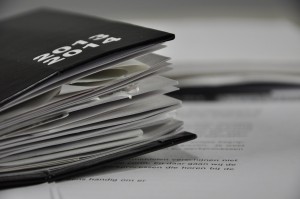Contributor: Crystal Karges, MS, RDN, IBCLC, Special Projects Coordinator at Eating Disorder Hope/Addiction Hope
 College students commonly face the demands of an overloaded schedule. From academics to social obligations to outside activities and work, college students are often running from one event to the next, struggling to meet all that is required of them. Many students may feel as if there is simply not enough time or energy in a day to accomplish all that needs to be done. For this reason, it is not uncommon for students to look for external ways to increase energy and stamina. This may through the use of caffeinated beverages, energy drinks, or even stimulants that can help increase productivity. Both prescription and non-prescription stimulants can be abused among college students.
College students commonly face the demands of an overloaded schedule. From academics to social obligations to outside activities and work, college students are often running from one event to the next, struggling to meet all that is required of them. Many students may feel as if there is simply not enough time or energy in a day to accomplish all that needs to be done. For this reason, it is not uncommon for students to look for external ways to increase energy and stamina. This may through the use of caffeinated beverages, energy drinks, or even stimulants that can help increase productivity. Both prescription and non-prescription stimulants can be abused among college students.
Stimulants are Not the Answer
 The nonmedical use of prescription stimulant drugs can result in dangerous consequences to the student, and unfortunately, this is more of a problem than is understood on college campuses. Studies have shown that the nonmedical use of prescription stimulants is more common among college students than high school students, with approximately 4-11 percent of college students reporting the nonmedical use of prescription stimulants in a year [1]. Other studies have shown that most students who use prescription stimulants non-medically often obtain medications from a friend who does have a prescription [1]. It is not uncommon for individuals who are prescribed a stimulant medication to sell, share or trade their drugs illicitly to others.
The nonmedical use of prescription stimulant drugs can result in dangerous consequences to the student, and unfortunately, this is more of a problem than is understood on college campuses. Studies have shown that the nonmedical use of prescription stimulants is more common among college students than high school students, with approximately 4-11 percent of college students reporting the nonmedical use of prescription stimulants in a year [1]. Other studies have shown that most students who use prescription stimulants non-medically often obtain medications from a friend who does have a prescription [1]. It is not uncommon for individuals who are prescribed a stimulant medication to sell, share or trade their drugs illicitly to others.
Some of the most common stimulant drugs that are used among college students include the following:
Caffeine
 While caffeine is a legal substance that countless Americans consume on a regular basis, the overuse of this substance can lead to an addiction. Many students consume caffeine through an array of coffee drinks, sodas, and energy drinks. Pulling an all-nighter to finish a project or homework assignment or make it through a work shift might be accomplished with the help of a caffeinated beverage. The danger results from the use of caffeine at higher doses, which leads to an energized high for a few hours and an inevitable crash. Too much caffeine can cause the body to become dependent on the substance to function and can lead to cardiovascular complications, irregular heart beat, nausea, anxiety, restlessness, sleep disorders, and gastrointestinal issues. “Living” on caffeine is a serious problem that can lead to more severe complications.
While caffeine is a legal substance that countless Americans consume on a regular basis, the overuse of this substance can lead to an addiction. Many students consume caffeine through an array of coffee drinks, sodas, and energy drinks. Pulling an all-nighter to finish a project or homework assignment or make it through a work shift might be accomplished with the help of a caffeinated beverage. The danger results from the use of caffeine at higher doses, which leads to an energized high for a few hours and an inevitable crash. Too much caffeine can cause the body to become dependent on the substance to function and can lead to cardiovascular complications, irregular heart beat, nausea, anxiety, restlessness, sleep disorders, and gastrointestinal issues. “Living” on caffeine is a serious problem that can lead to more severe complications.
Ritalin
Ritalin is a prescription medication that is meant to treat attention-deficit hyperactivity disorder, or ADHD. Ritalin is made with the substance methylphenidate, which functions as a psychostimulants. Ritalin can help increase focus and productivity, which can make it a desirable stimulant among college students. The nonmedical use of Ritalin is associated with many issues, including sleeplessness, nausea, confusion, increased heart rate and blood pressure, anxiety and agitation, and much more.
Adderall
 Adderall is an Amphetamine based drug that is also used for the treatment of ADHD. Amphetamines cause the release of dopamine and norepinephrine in the brain, which are stress chemicals that include feelings of alertness and impulsivity. Individuals who consume Adderall may do so in attempt to maximize focus, alertness, and energy, but this does not come without side effects. College students who use Adderall non-medically may also experience sleep and mood disorders, cardiovascular complications and more.
Adderall is an Amphetamine based drug that is also used for the treatment of ADHD. Amphetamines cause the release of dopamine and norepinephrine in the brain, which are stress chemicals that include feelings of alertness and impulsivity. Individuals who consume Adderall may do so in attempt to maximize focus, alertness, and energy, but this does not come without side effects. College students who use Adderall non-medically may also experience sleep and mood disorders, cardiovascular complications and more.
The use of stimulants among college students is a serious problem that should not be taken lightly. If you or someone you know is struggling with the use of stimulants to maintain your current schedule on campus, reach out to someone you trust about ways to appropriately handle this. Risking your health and wellness is not worth the temporary fix you might feel when taking stimulants, and there are more effective ways to manage your schedule.
Community Discussion – Share your thoughts here!
Are you a college student who has struggled with stimulant abuse? What resources on your college campus were helpful to you in overcoming your dependency on stimulants? What encouragement might you offer to another student who is also dealing with a similar issue?
References:
- “Nonmedical Use of Prescription Stimulants”, Medicine Abuse Project, http://medicineabuseproject.org/assets/documents/NPSFactSheet.pdf Accessed 13 August 2015
Last Updated & Reviewed By: Jacquelyn Ekern, MS, LPC on August 24, 2015. Published on AddictionHope.com
